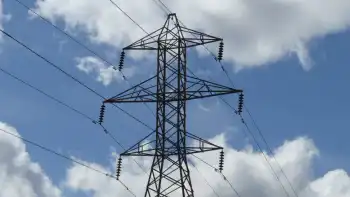Ontario cracking down on energy retailers
A bill tabled by Energy Minister Gerry Phillips would protect consumers from hidden contract costs, excessive cancellation fees, negative-option contract renewals and other unfair industry practices.
Consumers who feel they were pressured into signing a contract for electricity or natural gas will have three possible cancellation alternatives, including a 10-day cooling off period and another 30 days after receiving the first bill.
But local residents, who now pay on average $75 more per month for power if they signed up with a retailer, will continue to be drawn in by slick sales pitches despite increased government protections, McMillan said.
"People don't catch on quick enough."
McMillan recently obtained figures from the Orillia Power Corporation comparing the cost of 1,000 kilowatt hours of electricity for customers who stayed with the utility with those who signed fixed contracts with energy retailers.
Where a regular OPC customer would pay $112.43 per month, the customer buying power from a retailer would be charged $184.04 — $75.61 more.
The regular customer is paying 5.8 cents for the commodity — $58 for 1,000 kw/h, while the retail customer is dinged nine cents — $90 per 1,000 kw/h. And because the retail customer does not participate in a price-averaging plan called the provincial benefit, they pay a further $39.41 on 1,000 kw/h.
When you multiply $75 times the 1,800 households in Orillia signed up with retailers, that's $1,620,000 that is funneling out of the community every year, McMillan estimates.
Retailers provide their customers with guaranteed prices to protect them from fluctuations in the market. This made sense when people were buying natural gas from retailers because that commodity was subject to large and unpredictable swings in price.
But the price of electricity has been regulated for residential consumers since the retail market was closed in October 2002 after five months of haywire prices, McMillan said.
"It failed so bad, they closed it down and capped prices."
There is no shortage of electricity in the province and wholesale prices have averaged 3.2 cents this year.
It would take a catastrophe that knocked out two nuclear plants for prices to approach the nine cents retailers are charging for electricity, McMillan said.
Simcoe North MPP Garfield Dunlop believes the province should tighten the rules for electricity retailing.
"Something's got to be done. I've had nothing but complaints about these high-pressure salesmen knocking at the door," Dunlop said.
"I'm glad it's out there. This is a good bill."
Dunlop isn't convinced the practice of re-selling electricity should be banned completely, though there is a private member's bill before the House proposing exactly that.
"I want to examine what the government bill will do and compare the private member's bill," Dunlop said.
The government must take the protection of consumers against unfair, misleading or simply confusing retailing practices," Phillips told the legislature.
"It's time to bring the abusive practices to a stop, for the good of both consumers and the reputation of the industry."
The legislation will also provide greater fairness and transparency for consumers through rate comparisons and the use of plain language in contracts, added Phillips.
"It would require far greater disclosure on the part of electricity retailers and gas marketers, including providing plain language disclosure about key contract terms."
If the bill is passed, energy retailers will no longer be allowed to sign people to contracts on the telephone, Phillips said.
"It would also require an explicit and standardized format for showing consumers the difference they would pay on their monthly bill... (compared with) staying with their utility," Phillips said.
Energy sales people who go door-to-door will have to wear identification badges and undergo training and background checks, and they will no longer be allowed to have someone other than the utility account holder sign a contract for services.
Direct Energy, one of the largest electricity retailers, said all energy retailers have to fine-tune aspects of their sales process to ensure they are being "as transparent and responsive to consumers" as possible.
In the past year, the company has introduced third-party verification calls to make sure consumers understand what is being offered to them, and introduced plain language contracts, said Hillary Marshall, vice-president of communications for Direct Energy.
The other most common complaints stemmed from the fact consumers believed the private energy retailer was affiliated with their local power utility, and thought the contacts would guarantee prices lower than the local utility's default price.
"Unfortunately and too frequently, promises are made about cheaper, long-term energy prices and sales people pressure customers for a quick deal on their doorsteps," Phillips said.
"We've all heard stories from constituents, friends and family members who felt pressured, confused or misled."
Homeowners who signed long-term energy contracts complained they were tricked into paying a much higher rate than people who buy their power from a local utility, where electricity rates have remained relatively stable for several years.
Energy retailers have made the top 10 list of complaints to Ontario's Ministry of Consumer Services for three years, and are the topic of about 150 complaints to the government every week.
Related News

Maryland’s renewable energy facilities break pollution rules, say groups calling for enforcement
BALTIMORE - Many facilities that supply Maryland with renewable energy have exceeded pollution limits or otherwise broken environmental rules, violating a state law, according to a complaint sent by environmental groups to state energy and law enforcement officials.
Maryland law says that any company that contributes to a state renewable energy goal — half the state’s energy portfolio must come from renewable sources by 2030 — must “substantially comply” with rules on air and water quality and waste management. The complaint says more than two dozen power generators, including paper mills and trash incinerators, have records of formal or informal enforcement…




